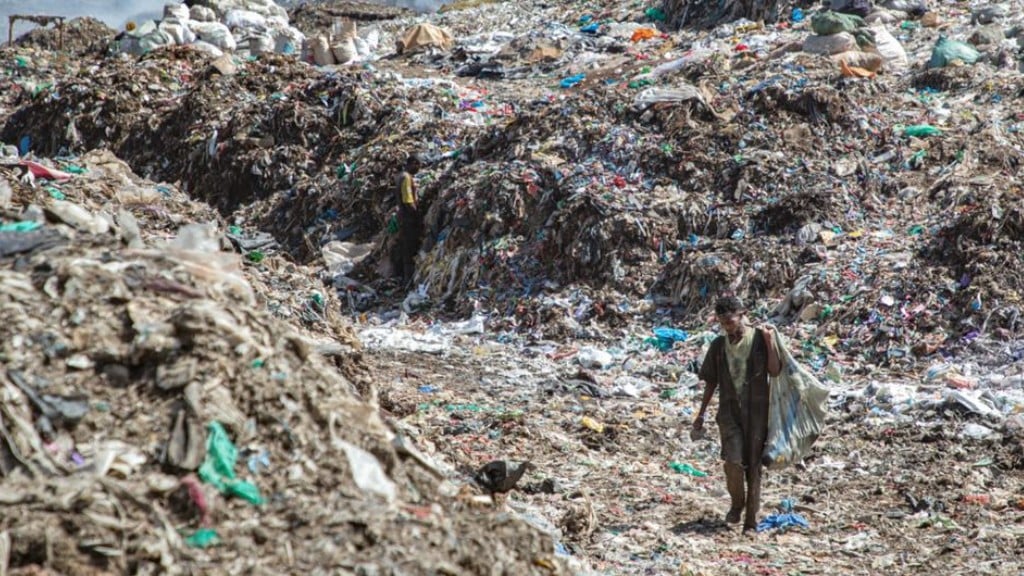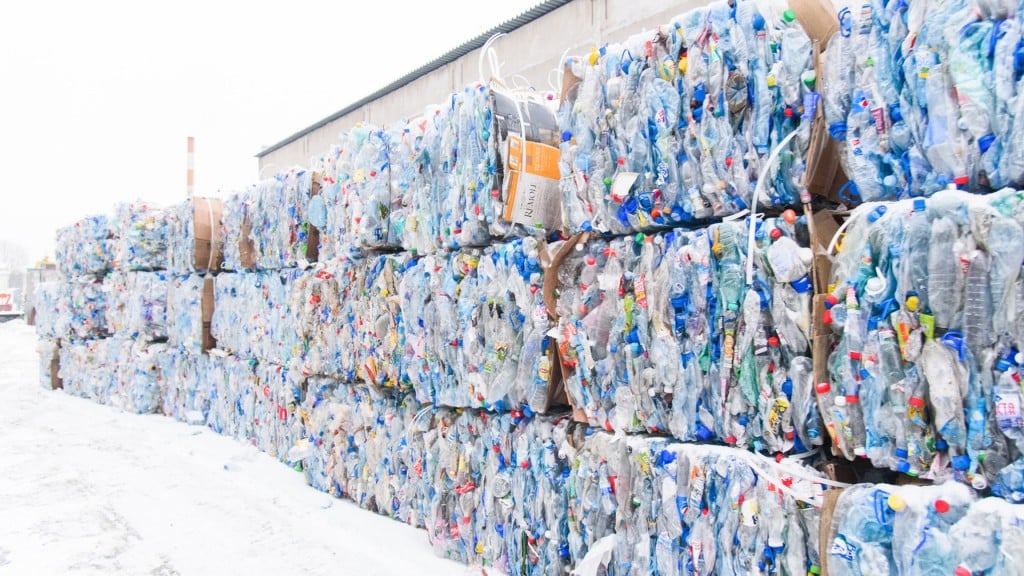Representatives from 175 nations endorse plastic pollution resolution at UN Environment Assembly

Heads of State, environment ministers, and other representatives from 175 nations, endorsed a resolution at the UN Environment Assembly in Nairobi on Wednesday to end plastic pollution and forge an international legally binding agreement by the end of 2024.
The resolution addresses the full lifecycle of plastic, including its production, design, and disposal.
On track for a resolution
"Against the backdrop of geopolitical turmoil, the UN Environment Assembly (UNEA-5) shows multilateral cooperation at its best," said President of the Assembly, and Norway's Minister for Climate and the Environment, Espen Barth Eide. "Plastic pollution has grown into an epidemic. With today's resolution, we are officially on track for a cure."
The resolution, based on three initial draft resolutions from various nations, establishes an Intergovernmental Negotiating Committee (INC) which will begin its work this year, aiming to complete a draft legally binding agreement by the end of 2024.
That in turn, is expected to present a legally binding instrument, which would reflect diverse alternatives to address the full lifecycle of plastics, the design of reusable and recyclable products and materials, and the need for enhanced international collaboration to facilitate access to technology, to allow the plastic pollution plan to be realized.
The UN Environment Programme (UNEP) said that it would convene a forum by the end of this year in conjunction with the first session of the INC, to share knowledge and best practices in different parts of the world.
It will be based on open discussion, informed by science, and report back on progress throughout the next two years. Finally, upon completion of the INC's work, UNEP will convene a diplomatic conference to adopt its outcome and open it for signatures.
"Today marks a triumph by planet earth over single-use plastics. This is the most significant environmental multilateral deal since the Paris accord. It is an insurance policy for this generation and future ones, so they may live with plastic and not be doomed by it," said Inger Andersen, Executive Director of UNEP.
"Let it be clear that the INC's mandate does not grant any stakeholder a two-year pause", she added. "In parallel to negotiations over an international binding agreement, UNEP will work with any willing government and business across the value chain to shift away from single-use plastics, as well as to mobilize private finance and remove barriers to investments in research and in a new circular economy."
The scale of the plastic pollution problem
Plastic pollution soared from two million tonnes in 1950, to 348 million tonnes in 2017, becoming a global industry valued at $522.6 billion, said UNEP. It is expected to double in capacity by 2040.
The impacts of plastic production and pollution on the triple planetary crisis of climate change, nature loss, and pollution are a catastrophe in the making, the UN agency said, with exposure to plastics harming human health, and potentially affecting fertility, hormonal, metabolic, and neurological activity, while open burning of plastics contributes to air pollution.
By 2050, greenhouse gas emissions associated with plastic production use and disposal would account for 15 percent of allowed emissions, under the goal of limiting global warming to 1.5°C (34.7°F) in line with the Paris Agreement on climate change.
More than 800 marine and coastal species are affected by this pollution through ingestion, entanglement, and other dangers, while around 11 million tonnes of plastic waste flow each year into the ocean. This could triple by 2040.
The resolution, entitled "End Plastic Pollution: Towards an internationally legally binding instrument", was adopted with the conclusion of the three-day UNEA-5.2 meeting, attended by more than 3,400 in-person and 1,500 online participants from 175 UN Member States, including 79 ministers and 17 high-level officials.
The Assembly will be followed by "UNEP@50," a two-day Special Session of the Assembly, marking UNEP's 50th anniversary where member states are expected to address how to build a post-pandemic world.
Protecting nature at the core of resolution
In her remarks to the UN Environment Assembly, the Deputy Secretary-General, Amina Mohammed, noted the theme was based around "Strengthening actions for nature to achieve the sustainable development goals."
"One thing we know for certain is that protecting nature is at the core of achieving the 2030 agenda and the goals of the Paris Agreement," she said.
"If we are to ensure food and water security for all people around the world, we need to prevent ecosystem collapse."
COP26 underscored the need to keep the 1.5C degree goal within reach, she said, adding that everyone now knows that climate impacts are "the greatest dividers: they hit vulnerable communities everywhere and they disproportionately impact the ability of developing countries to prosper and thrive."
She said that protecting ecosystems will help us keep closing the key greenhouse gas emissions gap by 2030.
Ms. Mohammed noted that progress on a legally binding global agreement on plastic pollution provides "a chance to truly make a difference, one that shows again the value of multilateralism," stressing that Africa has led the way.
34 out of 54 countries have already put in place legislation on single used plastics bags, she said.
"Today, no area of the planet is left untouched by plastic pollution, from deep-sea sediment, to Mount Everest. The planet deserves a truly multilateral solution to this scourge that affects us all. An agreement that speaks from source to sea," said Ms. Mohammed.


